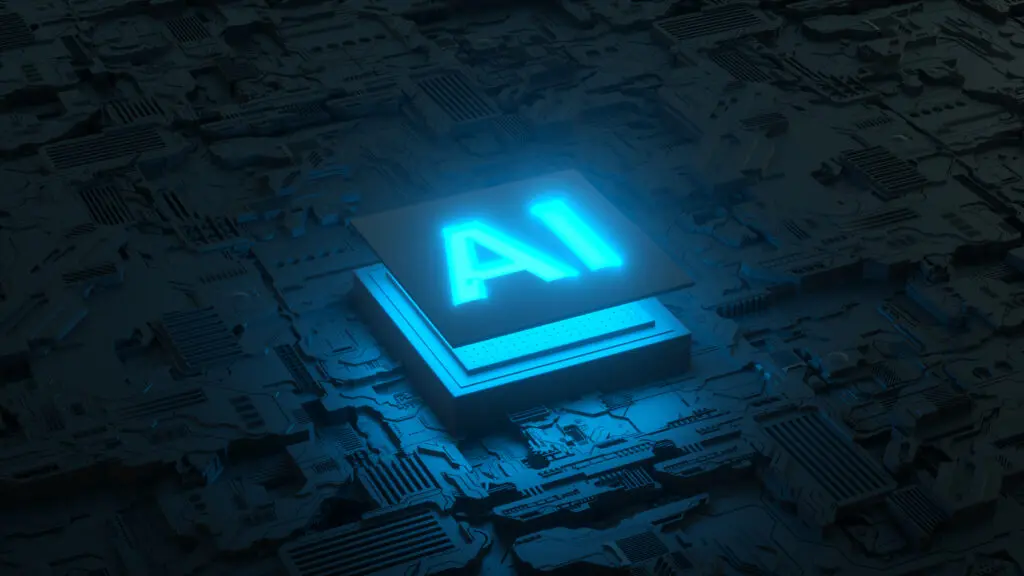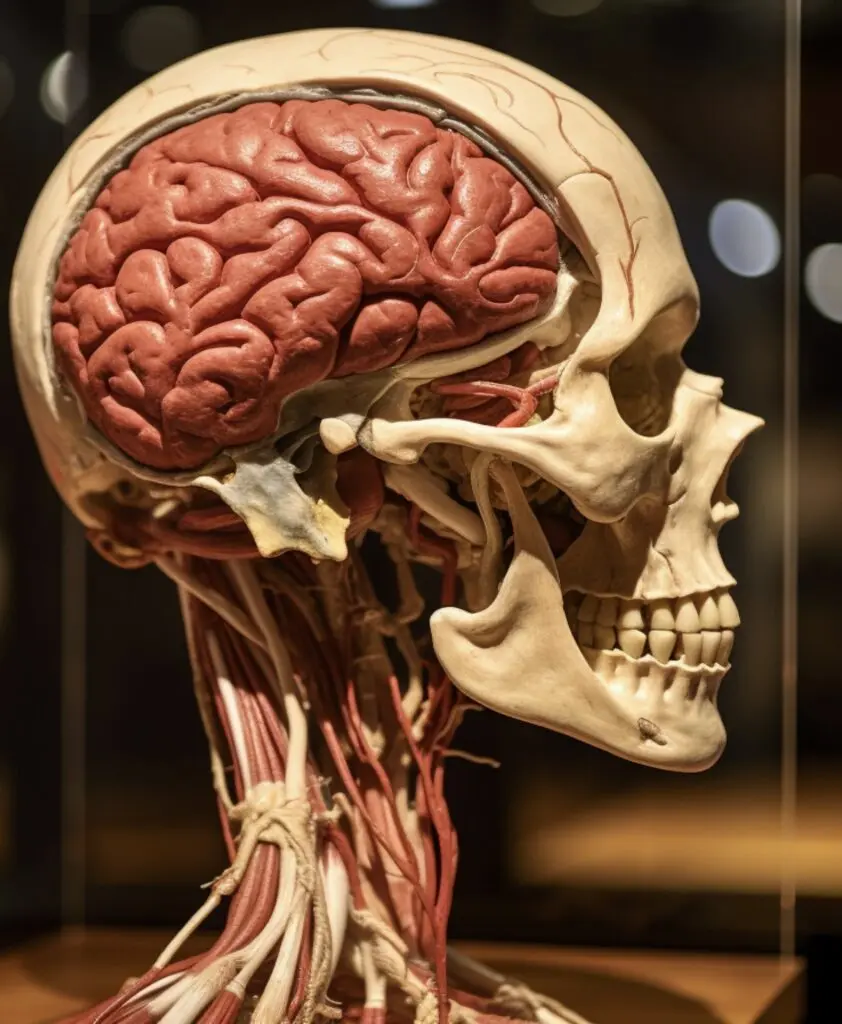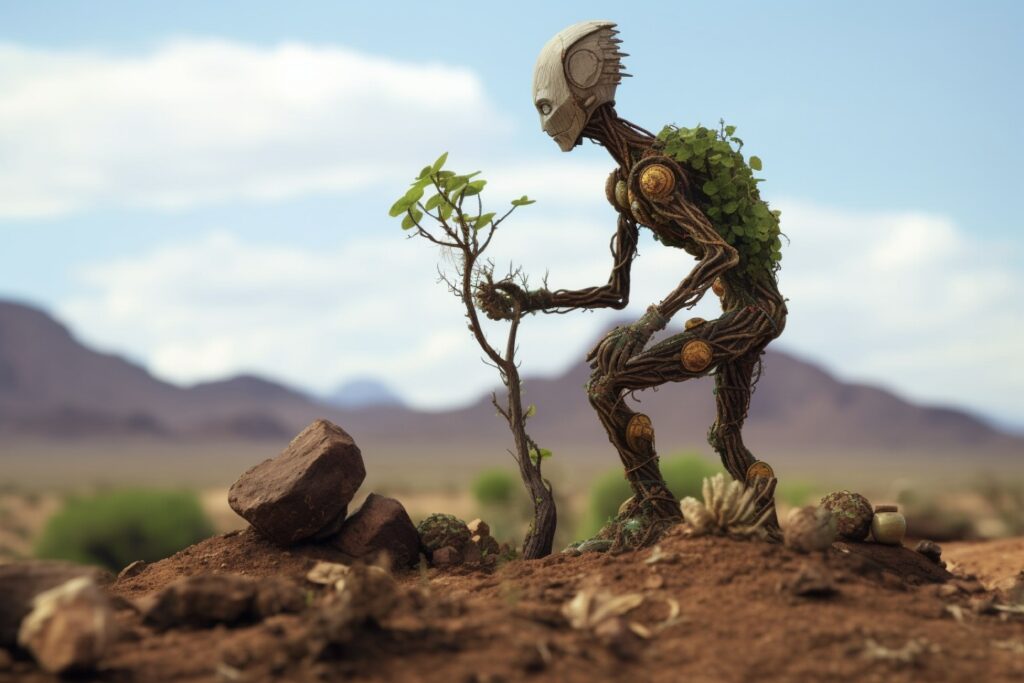Do you feel the same way? No matter where you look, the topic of artificial intelligence somehow dominates everything. Technology congresses have basically become AI congresses. AI writes term papers and creates deceptively real photographs. And AI already seems to have become serious competition for lawyers and Hollywood screenwriters. AI creators and fans rave about the possibilities; opponents want to regulate and even ban it.
I share one concern. By that, I don’t mean that AI will wage a campaign of annihilation against us humans. That we don’t even leave ourselves the option of turning off the power – we humans are only that stupid in Hollywood movies, right? I hope so.
I share the concern that is currently dominating the creative industry in particular. The screenwriters in Hollywood who worry about being relegated from creative storytellers to AI feeders. The photographers and designers who can’t keep up with Midjourney and other image-making AIs. Because they can’t steal and reassemble as much in as short a time as an AI can. And according to copyright laws, humans aren’t even allowed to do that. I’m also thinking of the voice actors and actors who have to watch entire documentaries being annotated by AI-generated voices today – and even the voices of actors are already being perfectly imitated.
Do we really want AI to take away what is most human of all: being creative, inventing, tinkering, finding solutions. In short: the abilities that make us humans like to call ourselves the crown of creation, or in the Darwinian sense: the spearhead of evolution. Yes, we have made ourselves dominant over many species, that are stronger than we are. Not because our brains can collect and evaluate masses of knowledge, i.e. data.
But rather: Because we are creative and invent tools. That was our unfair advantage in nature. We may not have had the strength, but we had the ingenuity to harness the ox to the plow or let the donkey push the mill wheel. Now we are working on a tool that is virtually all-knowing! More information and experiences are available to the AIs than ever a single human being can grasp. As a result, some AIs are already able to weigh things up more quickly and make better decisions than we humans can.
Digital Darwinism: this means that an old technology is displaced by a new, better one. Only here, two technologies are no longer competing! The human brain itself is getting competition.


Are we facing a future where AI puts us in front of the cart as workhorses?
Of course, there is a chance that we will eventually have nanochips that can be used to build AI capabilities into our brains. Optimal! We keep our creativity and personality and enhance it with artificial intelligence capabilities. But until that happens? Until then, AI remains software for now: non-tangible, a digital mind. We create gods that tell us what to do from the metaverse. These are then gods that have never taken out the garbage themselves, because they can’t do it! Because they have neither arms nor legs! Is the future then that we let ourselves be harnessed as work animals by AI’s before the cart? If our creative, cognitive abilities are no longer needed because the faster, more comprehensively informed AI takes over everything, what work will be left for us?
That’s why hardware has long been my focus. Robots with all the important senses and cognitive abilities, a body with which a predictive artificial intelligence can act autonomously.
Because I contend we all want a future where AI can take out the trash itself. We don’t want artificial intelligence to tell us what to do. We need to enable it to do it itself. In all areas of society and especially where skilled workers are lacking. In industry, in service, in care. And, of course, where dangerous or boring tasks need to be done. Cognitive abilities are the key to robots being able to support us in our everyday lives. After all, they need the ability to fully perceive their environment, but above all: us humans. Only then can robots work safely alongside us.
To do this, they need eyes and ears, but also a fine sense of touch. And they need nerve pathways, so to speak, that allow them to react reflexively and independently. In everyday life, numerous objects and processes need to be recognized and understood so that we can simply show the robots where the trash can is – and where the organic waste garbage can is outside. But first of all, it’s about recognizing and avoiding dangers at an early stage. That’s where AI plays a very central role. In industry, this is no longer a vision of the future. NEURA Robotics has already brought the first cognitive “cobot” onto the market with MAiRA. But if we equip MAiRA with the world’s most advanced AI and tell it to “Take out the garbage!”, it will respond, “Then make my legs!”
From my point of view, one thing is certain: advanced, cognitive robots will only really become established in society when they can not only orient themselves in an environment made for humans, but also move around. After all, we humans have been ergonomically optimizing our environment for us for thousands of years: Take stairs, doors, doorknobs or light switches. Almost all the aids and tools we use are designed for hands and have handles or switches. Robots of the future will not only need artificial intelligence. They need the full range of cognitive abilities as well as hardware, a body, with which to operate in our environment.
And since no one imagines a humanoid robot pulling a cart full of peripherals and batteries behind it, all the functions and components needed for them must be built into the robot. This “one-device” idea was the initial spark for the foundation of NEURA Robotics. And I was already sure at that time that such a platform idea not only simplifies many things in industry, but is also the best basis for the series production of humanoid robots.Just as software makes a computer usable for a wide variety of specialist areas and just as an app brings a smartphone to life, apps will also make a robot fit for a wide variety of applications.
AI and cognitivert robotics in combination – this will completely change society in many areas of life. Let’s make sure together that we don’t allow ourselves to be degraded to the handmaiden of AI! After all, creativity and culture distinguish us humans from the other creatures on our planet. And we all want AI to be just another tool in bio-digital Darwinism that makes our lives easier.


